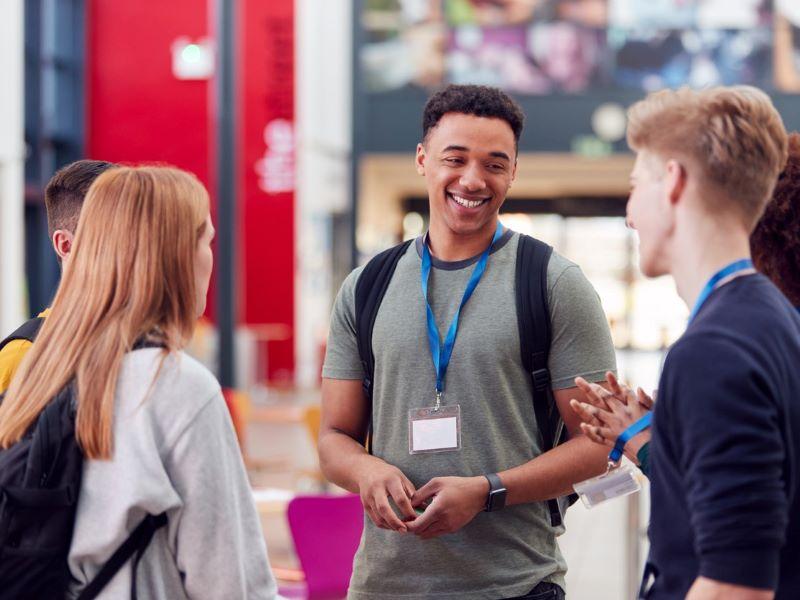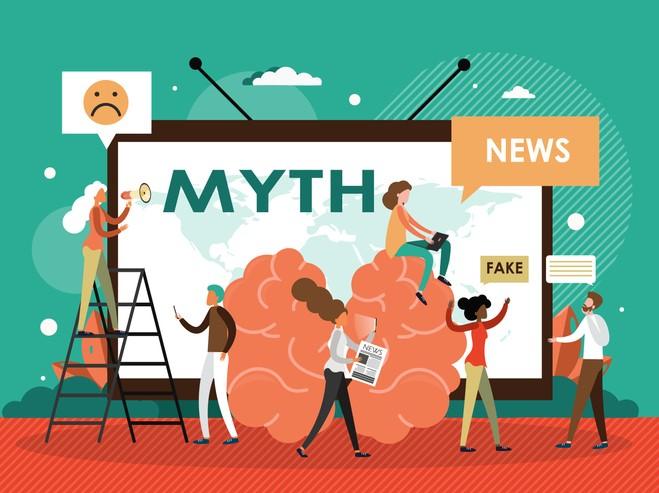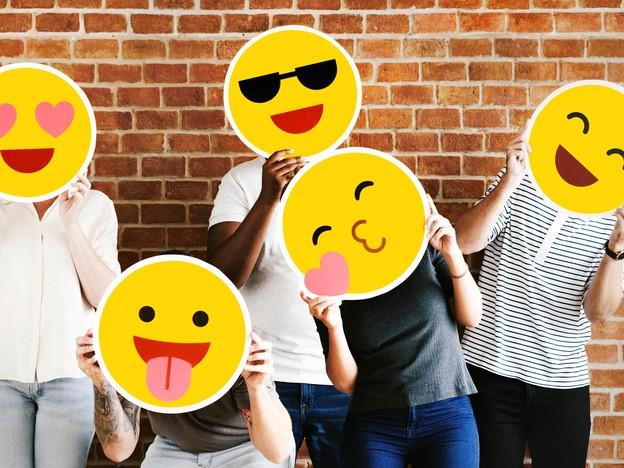
Lessons learned in creating and using innovative social media strategies

The internet and social media have fundamentally changed the way young people explore and learn about the world around them. Gen Z spend almost three hours a day on social media. Indeed, research done by the not-for-profit youth insight business, SFS Media, reveals that when you factor in having multiple devices open at any one time, they spend 16 hours a day online. And Gen A are five times more likely than Gen Z to agree with the statement: “I spend too little time on social media.”
Should we be frightened of this fact, or is it telling us that these channels offer great opportunities for universities to take a step towards their audiences, actively engage with them and inspire better decision-making? If the last, that means doing a few things differently.
- Tips for involving young people in research in meaningful ways
- Tactics for revamping your comms with students front and centre
- The 10 commandments of academic Twitter
How to engage generations Z and Alpha
This resource summarises learnings on how to engage Gen Z and Gen A, derived from three innovative Arts University Bournemouth (AUB) marketing projects:
1. The world’s first prospectus delivered exclusively on social media
The traditional prospectus’ demise has long been predicted. Prospect information is presented on the university website in a richer format, probably more up to date and certainly more sustainably. The key question is how to get this there.
With an overarching objective to transform engagement, reach and sustainability, we put our prospectus on social media, choosing Instagram.
Our aim was to engage the prospect earlier in the decision-making process, so we took a step towards our audience by choosing a platform they already use every day – and in so doing, put the prospectus back at the heart of the HE marketing plan. This year it won gold for Best Prospectus and silver for Best Use of Social Media at HEIST.
2. A more engaging and inspirational type of careers app
Careers advice in schools is fundamental to making good educational decisions. But current online portals feel more targeted at teachers than students, and all suffer a common flaw – if you don’t know what you’re searching for, how will you know to type it in the search bar? In 2022, AUB launched WonderWhat, an image-based careers search engine designed to ignite career curiosity. It is free to use and harvests no data – an impartial resource that Global Teacher Prize winner Andria Zafirakou called “a game changer”.
3. TikTok requires creativity and even a little bit of anarchy
We launched our first TikTok channel in summer 2022, but it wasn’t until we shared a conspiracy theory about our v-c being the artist Banksy that we truly engaged our audience, made an unlikely star out of the v-c and won a million-plus views.
Lessons learned and advice
Your initiatives and solutions will most likely be different, but this is what we learned and why these initiatives worked for us:
- For Gen Z/A, the term “social media” is a misnomer – it is how they engage with and learn about their world and make plans for the future.
- Social media can have an incredible amplifying effect on your marketing, but remember it is driven by community and you are there by permission not right. So, build communities – don’t try to buy audiences.
- Working in HE marketing is indeed a privilege – helping people make life-changing decisions. But despite this weighty responsibility, it’s crucial to remember we are talking to young people – by turn overawed and excited by careers and university choices, cynical of advertising and adept at filtering out thousands of campaign messages every day, as well as emotional and sometimes slightly anarchic. Talk to the whole person, not just the “consumer”.
- In the majority of cases, a prospect has to provide data to receive a traditional prospectus. While as marketers we value this exchange, if we freed ourselves of this transactional obstacle, could we become more engaging/porous? The print run of our last prospectus was 30K – the Instagram prospectus reached nearly 400K accounts in its first cycle.
- Listen to colleagues. Concept testing research with academics encouraged us to ditch the traditional prospectus. One said: “I get an email once a year (to review the course pages of the next prospectus) and go ‘oh s@*t’...The prospectus is an old tool. I don’t recognise it as something that aspiring applicants are valuing.”
- Better educational decision-making is not a code for “recruitment for my uni”. The problem of shrinking applications for subject areas such as the arts or humanities are upstream, in the school curriculum. The WonderWhat app is designed to engage and inspire pre-GCSE audiences with better careers information so they can make more informed education choices along the way. Be generous, even if that means helping others in your sector; it’s not all about bums on seats.
- Gen Z, and Gen A even more so, want us to live our values – ditching our printed prospectus saved the world 8 million pages of print.
- Universities (and v-cs) need to be brave and confident enough of their place in the world to have a bit of fun with their own self-image. Hats off to my boss, vice-chancellor Paul Gough, for this. The Banksy/Gough TikTok reminds us that sharing your humanity, not just your office, is a powerful thing.
- Authenticity is key with this audience, especially on these channels. And it comes in all shapes and sizes. Keep it real.
- Genuine creativity, such as the Banksy conspiracy theory, works. It gets you noticed, it starts conversations and it builds share of mind – particularly useful when you’re one of the smaller players in a crowded sector.
- Always listen to the youngsters in your team – that bonkers TikTok idea could be just what your marketing plan needs. By the by, that bonkers TikTok idea we went with has just been shortlisted alongside Burberry, Tesco and Amazon in the TikTok Awards.
Social media is much more than just social. It offers institutions a huge opportunity to innovate, make themselves more accessible to more people and ultimately help marketers live up to their responsibility: supporting young people to make some of the most important decisions of their lives.
Simon Pride is head of recruitment and marketing at Arts University Bournemouth.
Arts University Bournemouth was shortlisted for Outstanding Marketing/Communications Team at the THE Awards 2022. A full list of shortlisted candidates can be found here.
If you would like advice and insight from academics and university staff delivered direct to your inbox each week, sign up for the Campus newsletter.
Additional Links
You can see how our Instagram prospectus and TikTok went down with young people in post-testing research with 14-18 year olds:
TikTok: https://vimeo.com/759529834/fed5c07317
Instagram prospectus: https://vimeo.com/763362607/8030d9e980
The WonderWhat co-creators, Arts University Bournemouth and design agency, Bond and Coyne, are now talking to other institutions to take the app into different subject areas. Please get in touch with spride@aub.ac.uk if you are interested to know more.


